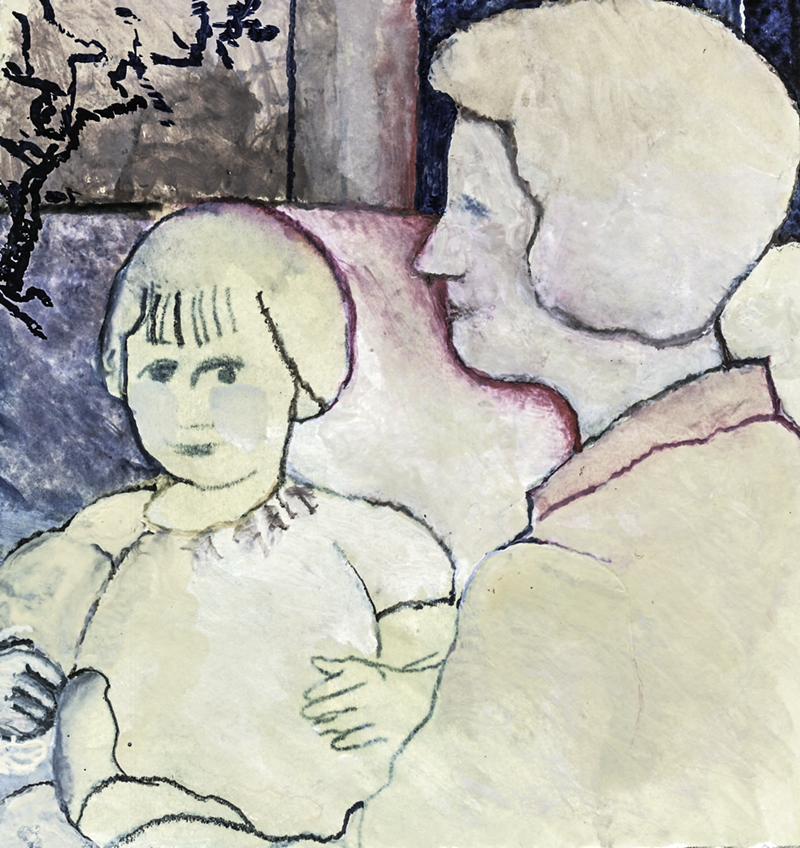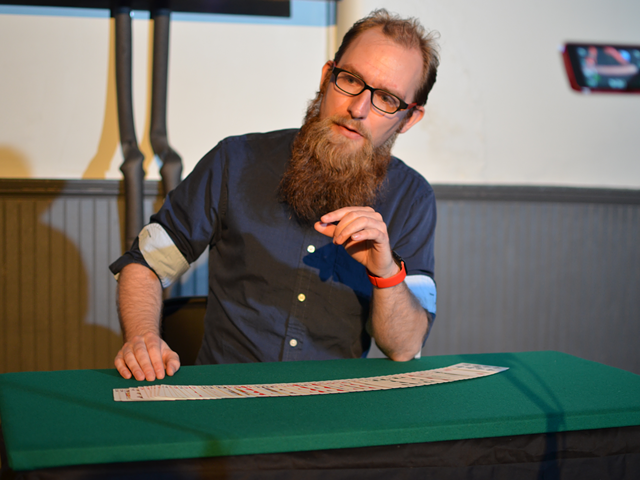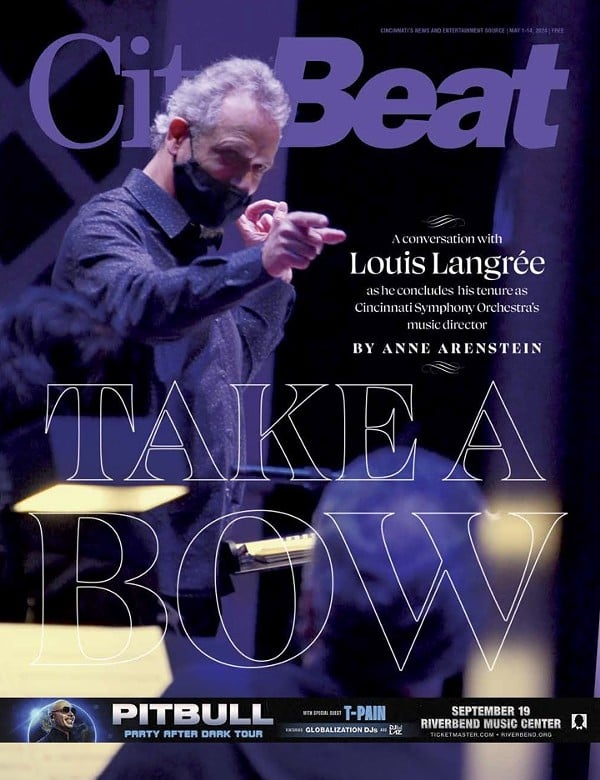I’m hard-pressed to give a concise description of She Buried the Pistol, a one-woman performance piece that premiered at the Cincy Fringe on Saturday at First Lutheran Church. As presented by its author/creator, Lydia Blaisdell, the show takes many forms: It’s not exactly a play (no scenes or action as such). Its structure, in fact, is more like an accumulation of facts and a recounting of specific events, with Blaisdell commenting about them. But it builds until the audience recognizes some very uncomfortable truths about gender roles and how the medical world is not always sensitive to them or, sometimes, even curative. Its strength comes from its matter-of-fact honesty, something that Blaisdell radiates.
She structures the evening as part of her long search for the truth about the fate of her great-grandmother Cora, whose husband was allowed to commit her to a mental institution on a whim, where she remained for more than 30 years until her death in 1963. Using slides and keepsakes of Cora’s possessions, Blaisdell recounts those facts she’s been able to discover about Cora. Along the way, she involves the audience by asking them to hold pieces of Cora’s jewelry or recite from medical records. This had an interesting effect, personalizing Cora to the audience in a way that watching an impersonal image could not.
Presenting facts in such a sterile form impacted us more powerfully than had Blaisdell tried to impose an emotional point-of-view on them. For example, a list of the types of treatments that Cora received (regular electro-shock therapy; forced hydrotherapy; treatment by completely untrained staff; the fact that she “didn’t have a lobotomy”) layered powerful and emotional imagery on the audience, fueled by our own imaginations.
This was more than a summary of one person’s sad fate. Blaisdell interwove Cora’s story with her own contemporary experiences with doctors and the medical establishment to make a profound and disturbing point: Less has changed than we think. Women are still marginalized and treated as “hysterics” by society and the medical community. I can imagine that each one of Blaisdell’s experiences — sometimes humiliating — drove her harder toward discovering the truth about her great-grandmother. It was jarring as a male to realize how commonplace such treatment of women still is.
The presentation had some rough spots on opening night. The lighting and projections suddenly went out, something that Blaisdell handled smoothly. She was nervous (which she admitted) and often referred back to her script, which she held throughout. But Blaisdell offset those issues with a simple and genuine quality that made us root for her, personally and in her search for truth about her family. Several times she posed the hypothetical question of ‘if she had been loved’, whether any of this would have happened. More profoundly, she showed an awareness of the ripple effect that the past has on our present, especially in families.
She Buried the Pistol asks a lot of important questions, and we leave the theater thinking more about them than we had before.
The Cincinnati Fringe Festival runs through June 10. Find showtimes, tickets and more info here.






